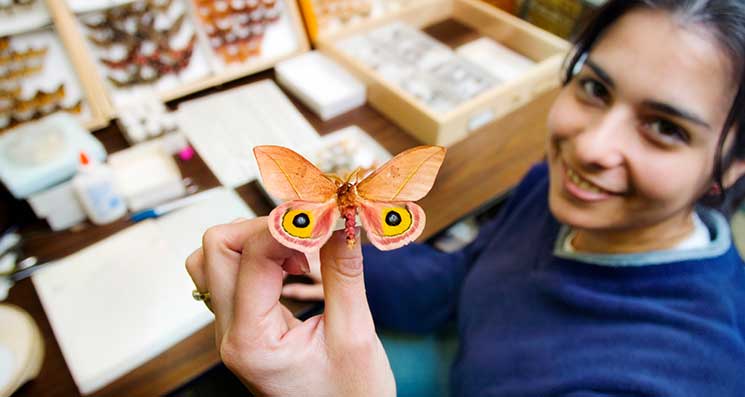Current Students

Undergraduate Program Advising
The Undergraduate Student Advising Guide details the programs and coursework required as part of the different concentrations within the Biochemistry Major.
Accelerated Degree Programs
The Department of Biochemistry, Molecular Biology, Entomology and Plant Pathology offers an accelerated master's program in Biochemistry, both thesis and non-thesis tracks. This program requires careful planning by the student in order to complete the requirements for the undergraduate degree while beginning a research program that should result in successful completion of a master's degree at the end of the second summer after earning a bachelor's degree. Students in an Accelerated Program take graduate-level courses and earn both undergraduate credit and graduate credit simultaneously during their final semester of undergraduate study. Students need to consult with a potential graduate advisor to ensure graduate credit could be applied to a program of study for the graduate degree. The student interested in the five year program should apply early in the undergraduate program to facilitate the scheduling of courses to conform to time constraints.
The Department of Biochemistry, Molecular Biology, Entomology and Plant Pathology offers an accelerated doctoral program in Molecular Biology. This program requires careful planning by the student in order to complete the requirements for the bachelor's degree while beginning a research program that should meaningfully accelerate progress towards early completion of the Ph.D. degree in Molecular Biology. By initiating a research program in the senior year of the undergraduate degree program, a student should reduce the time to completion of the Ph.D. by a year.
Accreditation
The Biochemistry major is accredited by the American Society of Biochemistry and Molecular Biology. Accreditation is a national, independent, outcomes-based evaluation mechanism that recognizes excellence in B.S. or B.A. degree programs in biochemistry and molecular biology and related disciplines. As a benefit of the accreditation, students may sit for the comprehensive accreditation exam, easing their admission into competitive research programs and other advanced training opportunities.
Career Opportunities and Professional School Information
Biochemists, molecular biologists, entomologists, and plant pathologies are employed in a variety of industries concerned with genetic engineering, human and animal nutrition, processing of foods, development of drugs and other medications, manufacture of chemicals for a wide range of uses, in ecological studies, and also in the area of sales for biochemical products. They also participate in laboratory research in universities and colleges, in research institutes, in hospitals, forensic laboratories and in government installations.
Minors/Certificates
The Biochemistry minor allows students to develop research skills needed to enter the science-related workforce.
The Entomology minor allows students to enhance their employment opportunities with a well-grounded understanding of insects.
The Plant Pathology minor allows students to enhance their employment opportunities with the skills needed to diagnose and treat plant pathogens.
The Precision Agriculture Certificate program features emerging technologies in decision-based agricultural planning and implementation.
Research and Internships
There are several ways students can get 'hands-on' research experiment. Students may apply for the Undergraduate Research Scholars program offered through the College of Agriculture and Life Sciences. Students may also complete a summer internship or a Directed Individual Study (DIS) research experience on-campus. You may also find employment and opportunity working in the many laboratories in the department. Ask your professors if they are looking for student assistance. Research experience looks great on your resume, plus you have the opportunity to publish your findings. Most importantly, when interviewing for entry into professional schools (medical school, veterinary, etc.) research and internship experiences make great talking points and demonstrate a commitment to your field. In addition, laboratory or field-based research opportunities give you invaluable hands-on experience and a chance to apply what you are learning in the classroom. Please visit our internship page to learn more.
Scholarships
Students may apply for university, college and departmental scholarships through one application. You can find the scholarship application once you login to myState. Under the banner tab, select Financial Aid and Scholarships. The application is listed as Submit/Revise General Scholarship Application.
Quick Links
- Academic Calendar
- Apply Online
- Courses
- Curriculum
- Facilities
- Financial Aid
- Graduate Bulletin
- Locate Clay Lyle Entomology Bldg.
- Locate Dorman Hall
- Schedule A Visit
- Student Housing
- Student Organizations
